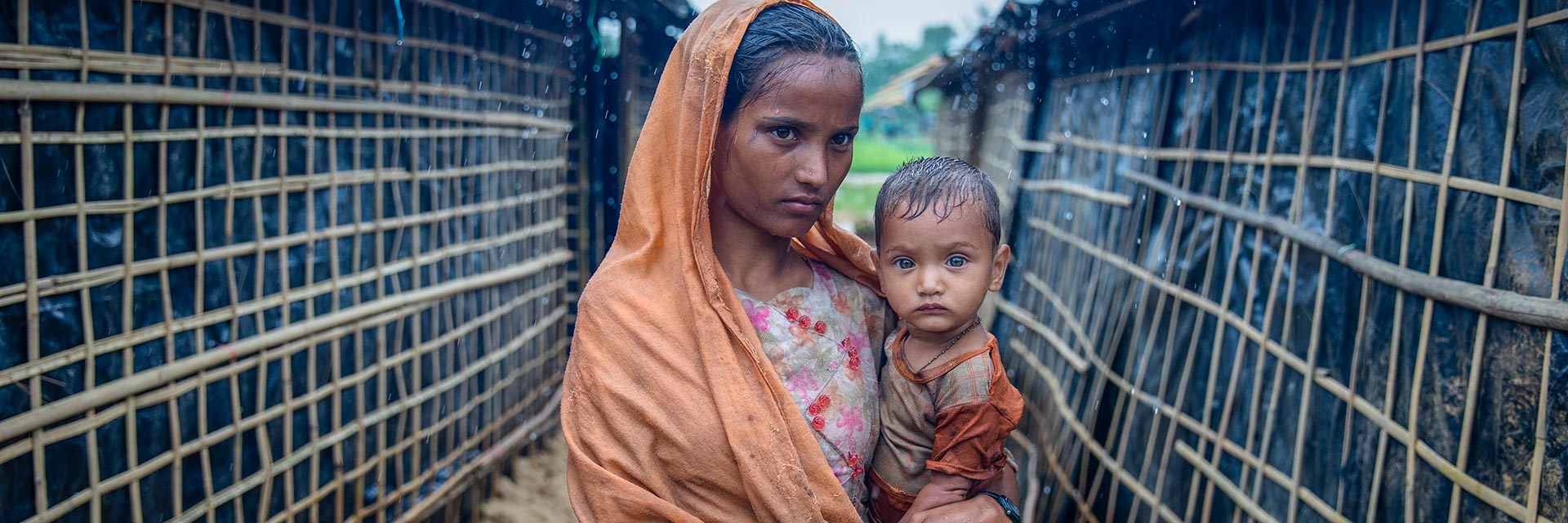
Jannat Ara says she lost track of her husband while they were running for their lives from a military attack. Jannat managed to cross the border with her 10-month-old child Noor Safa*, but she doesn’t know what happened to her husband. She fears what the future holds for her and her baby. Photo: CARE
Women and children fleeing Myanmar

Many families have been broken apart during their flight to Bangladesh. Ayesha, 22, and her four children fled Myanmar. She says her husband was shot as they were fleeing from Myanmar, and she still doesn’t know if he is dead or alive. Photo: CARE

Fatigued refugees get off boats after crossing the Naf River that separates Myanmar and Bangladesh. Many of these families have walked for days, often without food, with the aim to find a safe haven. Photo: Islamic Relief Canada
Responding to the needs of women and children
Ayesha*, 22, and her four kids were separated from her husband during their escape to Bangladesh. She says he was shot, and she doesn’t know if he’s dead or alive.
Ayesha’s story is a common one here in the Bangladesh refugee camps bordering Myanmar.
More than 600,000 people have fled Myanmar since August 25, 2017; 80 per cent of those are women and children. Many families have been separated and children often arrive alone. Each new arrival comes with stories of long journeys, escape and fright.
Jannat Ara* arrived with her 10-month-old daughter, Noor Safa* but without her husband. She doesn’t know where he is, or what the future holds for her.
Thousands of people like Ayesha and Jannat have little shelter, often camping in the open on the muddy hillsides of Cox’s Bazar.
They have no access to clean water or toilets. The high concentration of displaced people living with almost no basic amenities poses a serious risk on many levels, including increased spread of disease and heightened likelihood of gender-based violence and child protection issues like human trafficking, sexual abuse, child labour and child marriage.
One 14-year-old girl, Rahana*, mentions that there’s only one latrine near her shelter. Because it’s mostly men that go there, women and girls are afraid and wait until nighttime to relieve themselves in the jungle.
Members of the Humanitarian Coalition are in Bangladesh, providing emergency relief as well as protection services. However, the massive influx of arrivals, the ongoing monsoon season and the lack of access to safe water means that without humanitarian aid, their lives are at risk.